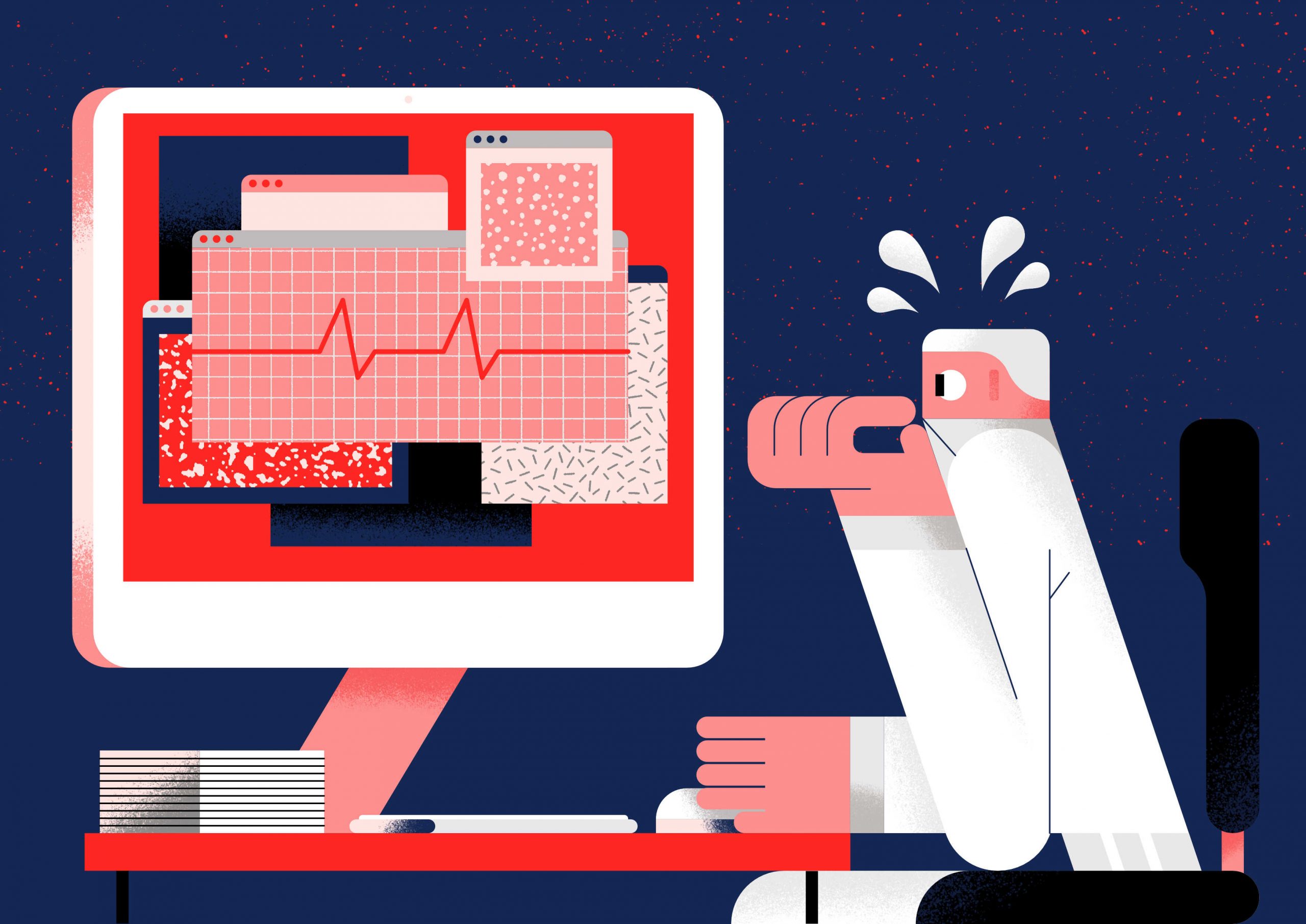An increasing workload, stress, and a huge feeling of responsibility for patients’ lives. Sound familiar?
Manual ECG analysis is a traditional and widely used method for Holter ECG examination. The results of such analysis mainly depend on the knowledge, skills, and vigilance of the doctor carrying it out. However, cardiologists and other healthcare professionals are exposed to a lot of stress and time pressure, which can sometimes lead to unintentional mistakes. That’s why this method is highly affected by human error and is often inaccurate. This is one of the 3 major challenges we discovered working with cardiologists from all over Europe.
Do you sometimes have the impression that you lack accuracy in Holter ECG analysis?
Cardiomatics is a solution that is already helping doctors to face this challenge. It is a cloud-based AI Holter ECG analysis technology which can analyze signals recorded in various data formats regardless of the length of the ECG recording. It is made for cardiologists, general practitioners, hospitals, and healthcare facilities, as well as healthcare providers and manufacturers.
AI algorithms have the ability to interpret ECG signals with more precision as they are not prone to human mistakes. They act as a second pair of eyes, giving doctors more certainty, regardless of time pressure or stress in the work environment. AI algorithms are trained on millions of datasets and are constantly learning. This means that they are becoming better and more precise with every heartbeat they analyze. Therefore, algorithms can evaluate many more signals than a doctor is able to see throughout their entire career!
Thanks to machine learning, Cardiomatics can deliver an accurate interpretation of Holter ECG recordings and reliable reports. It is classified as a CE-marked medical device, which attests to its precision and safety. Our algorithms have analyzed more than 3.5 million hours of Holter ECG recordings and generated hundreds of thousands of reports, with a positive feedback rate of 99.9%. The effectiveness of Cardiomatics algorithms has been validated in clinical trials, and they are trusted by the University of Basel, the University of Copenhagen, and the Medical University of Warsaw, as well as by hundreds of cardiologists and practitioners from more than 15 countries – e.g., Germany, Switzerland, England, and Poland.
AI algorithms increasing precision in clinical practice
The Swiss Atrial Fibrillation Cohort Study, which was conducted by University Hospital Basel in Switzerland together with Cardiomatics, proved that the assessment of AF burden with an AI-based tool provides very similar results to manual assessment. This suggests that an AI-based tool may be an accurate and efficient method for the assessment of AF burden.
“Within Swiss-AF Burden, we measured the AF burden manually using a standard 7-day Holter ECG. It was very challenging to manually validate our results, especially with patients with multiple AF (Atrial Fibrillation) episodes and noisy recordings. The medical-grade system from Cardiomatics which we are using ensures high-quality and trusted outcomes based on accurate algorithms,” said Prof. Christine Meyer-Zuhn, MD from University Hospital Basel.
Another example that indicates the accuracy of AI-based software is the implementation of Cardiomatics in the American Heart of Poland’s clinic in Augustów. Our software supported AHP in arrhythmia diagnostics during ambulatory and remote monitoring, but also in post-intervention diagnostics – monitoring of patients after cardiac surgery, e.g., ablation. The result of the cooperation was that 8% of patients tested using Cardiomatics were diagnosed with atrial fibrillation. What’s more, AHP pointed out that the most important feature of our solution was the elimination of noise and artifacts from ECG signals.
“One advantage of Cardiomatics artificial intelligence is its constant improvement because the system keeps learning, so to speak, from its own mistakes and new information gathered when performing subsequent tests. Our experience with this system is very promising and we would like to continue working with it,” said Beata Biedulewicz, M.D., internist, geriatrician, PAKS.
Is Artificial Intelligence a threat to human doctors?
When it comes to implementing Artificial Intelligence in cardiology, it isn’t about giving machines complete autonomy or eliminating physicians’ work. Instead, it involves incorporating a new device into medical practice to ensure patient safety, improve diagnosis, and upgrade precision and efficiency.
Obtaining accuracy is not the only challenge that cardiologists are struggling with in their daily practice. If you are curious what the other two challenges are, find out more in our second article on this topic.
Would you like to learn more about implementing Cardiomatics software at your workplace?

